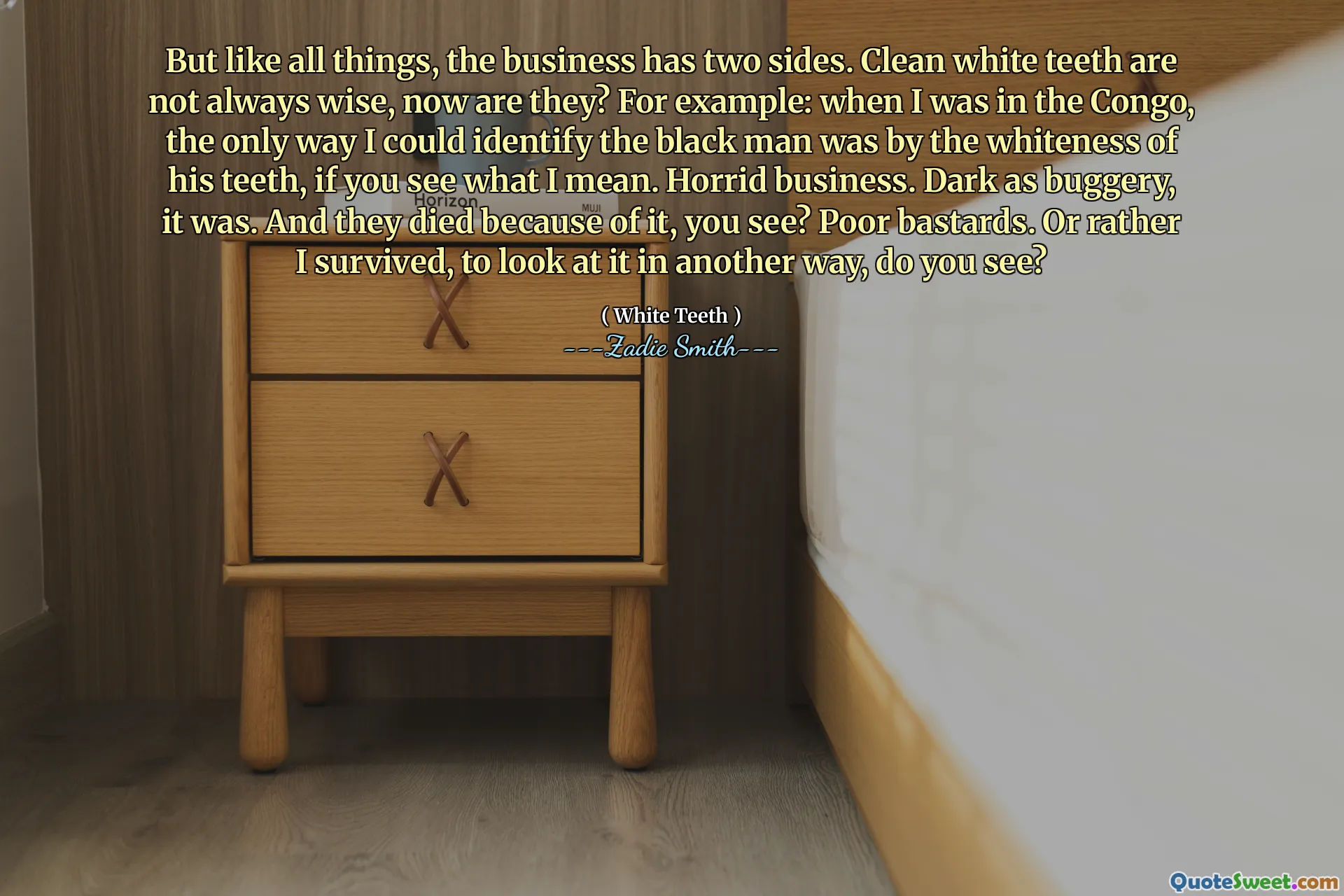
But like all things, the business has two sides. Clean white teeth are not always wise, now are they? For example: when I was in the Congo, the only way I could identify the black man was by the whiteness of his teeth, if you see what I mean. Horrid business. Dark as buggery, it was. And they died because of it, you see? Poor bastards. Or rather I survived, to look at it in another way, do you see?
This quote provokes a reflection on the paradoxical nature of appearances and the ways in which societal perceptions can be rooted in superficial attributes, often at the expense of truth. The speaker highlights that something as seemingly positive as white teeth can serve as superficial racial markers, which exposes how visual cues are sometimes used to categorize or judge others quickly. The mention of the Congo and the identification of individuals based solely on the whiteness of their teeth underscores how superficial markers can be charged with social and racial meanings, often leading to dehumanization or violence. It sheds light on the darker side of human history, where stereotypes and physical features have been misused to justify brutality and injustice. The phrase







